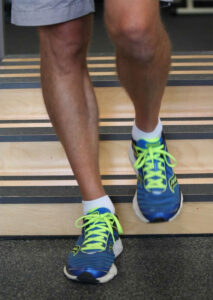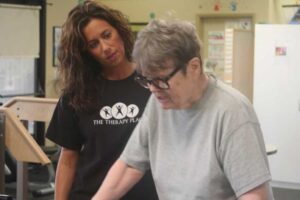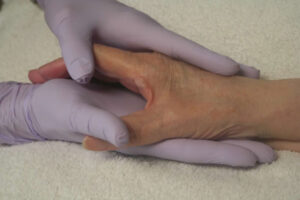The Therapy Place is Ready to Help
The Therapy Place of Kalamazoo, MI provides occupational therapy for adults. In addition to the many physical and mental health services we offer, our experts provide home evaluations, adaptive equipment assessments, and caregiver training.
Home Evaluation
 Because our population is aging and many people have one or more disabilities, home evaluations are increasingly important to providing effective occupational therapy for adults.
Because our population is aging and many people have one or more disabilities, home evaluations are increasingly important to providing effective occupational therapy for adults.
In addition, 90% of older adults wish to age in place, increasing the need for services.
During an occupational therapy home evaluation, we work with patients to identify changes to the home environment that can make everyday easy and safe. Occupational therapists will make recommendations to increase home safety and remove barriers to independence.
In addition, the occupational therapist will review and document the person’s physical and mental abilities such as strength, range of motion, and transfer abilities. The therapist will also evaluate environmental factors including mobility barriers, unsafe conditions, and pre-existing adaptive devices.
Taking all these factors into consideration, the occupational therapist will recommend modifications. These may include:
- Grab bars.
- Railings.
- Shower seats.
- Shower head.
- Modified toilets.
- Non-slip mats or strips.
- Modified doors and cabinets.
- Changes to the height of countertops and sinks.
- Removal of throw rugs, exposed wires and cables, unsafe floor conditions.
How Occupational Therapy Can Help
Occupational therapists are uniquely positioned to assess and advocate for the needs of their clients. In addition to evaluating their physical needs, the occupational therapist will also evaluate and ensure that the home environment supports those needs.
Adaptive Equipment Assessment
 Occupational therapists are experts at determining what type of adaptive equipment a person may require to maintain their activities of daily living.
Occupational therapists are experts at determining what type of adaptive equipment a person may require to maintain their activities of daily living.
These activities include everything from bathing, dressing, grooming, cooking and eating to those involving work, driving and leisure activities.
The type of adaptive equipment is as varied as these activities. Some options include the following:
- Canes.
- Walkers.
- Wheelchairs.
- Eating utensils.
- Cooking equipment.
- Dressing sticks and shoehorns.
- Velcro fasteners.
- Adaptive shoes.
- Toothpaste dispensers.
- Soap dispensers.
- Long-handled sponges.
- Spray-can extenders.
Some clients may require more involved equipment for driving, work or basic mobility such as vehicle modifications and motorized wheelchairs.
Physical home and work modifications may include ramps, widened doorways, grab bars, rails, raised seating, shower seats, and modified toilets and showers.
How Occupational Therapy Can Help
Occupational therapists will assess each person’s physical and mental capabilities, their work and home environment, and the activities they wish to participate in to determine the adaptive equipment that best fits the person’s needs.
Caregiver Training
 Caring for an older adult can be rewarding and fulfilling, but it can also place great physical, emotional and financial demands on caregivers.
Caring for an older adult can be rewarding and fulfilling, but it can also place great physical, emotional and financial demands on caregivers.
The majority of care is provided by family members. Sometimes the needs of a caregiver become secondary. This can lead to stress and burnout for the caregiver.
Occupational therapists are trained in helping with a range of physical, developmental, behavioral and mental conditions. They seek to help patients participate in the activities of daily living. Their training and experience ensure our occupational therapists are well-equipped to train caregivers in how best to care for their loved ones. Importantly, occupational therapy can help caregivers meet the older adult’s needs while also supporting the needs of the caregiver and the rest of the family.
Contact Us
If you have any questions, please call and speak to one of our therapists at (269) 544-2901 or send us an email.
The American Occupational Therapy Association is a contributing source for this information.
